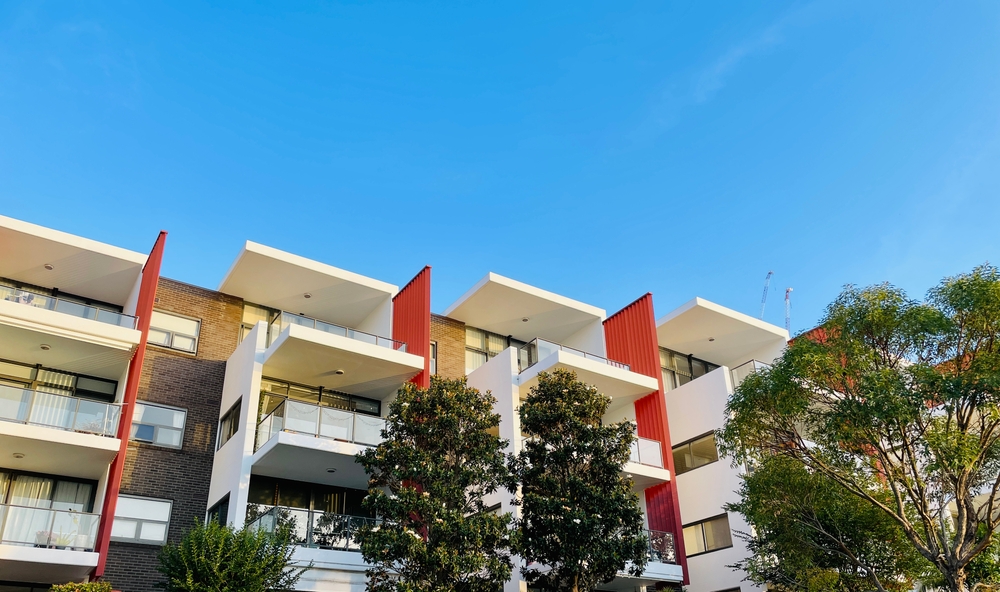A resident manager will always be the best person for the job.

Resident managers deliver service around the clock in a way that is cheaper and far more effective than any form of management offsite.
That’s just common-sense. But sometimes it’s important to remind resident managers themselves of just what a great service they provide and for those resident managers, in turn, to remind the body corporate of all the benefits that come from a manager who is onsite and ready to deal immediately with problems or emergencies.
In the last few years there have been hundreds of time and motion studies completed that showed in 87 per cent of cases the onsite manager was being underpaid, sometimes by as much as 40 per cent.
And we know that Lot Owners appreciate Onsite Management with a long term agreement because on 85 per cent of occasions when asked to extend or vary the caretaking service agreement they say yes! That is real people power.
Going that extra mile for owners and guests is the secret to a long and fruitful journey in Management and Letting Rights.
We all work in a service industry and great service is what resident managers provide.
They are the cornerstone of the $55 billion yearly economic benefit for Australia that comes from Management and Letting Rights businesses.
Not having a resident manager at a scheme means outside contractors are called in as required, and that’s usually pretty often. Each call-out attracts a fee and takes time.
Without a resident manager, a scheme would require an offsite manager/body corporate representative and/or well meaning volunteer to arrange and supervise contractors, obtain quotes, check completed work, authorise accounts for payment, and provide reports for the body corporate committee.
Without a resident manager, there would have to be a pool maintenance contractor for the daily cleaning, testing, recording and adjusting of chemicals across seven days a week.
Without a resident manager, a gardening contractor would have to be retained for the regular maintenance of gardens, lawns, shrubs and hedges, as well as watering, fertilising, mulching and the removal of rubbish.
Without a resident manager, there would have to be a cleaning contractor to clean all common property areas daily both internally and externally.
Without a resident manager, a maintenance contractor would have to be employed to carry out minor repairs and perform maintenance of the common property to such a level as to not require the services of a skilled tradesman.
Without a resident manager, a security company would have to oversee the general security of the property, maintain order, and be on call for emergencies, break and enters or disturbances.
With onsite management, the manager generally resides onsite 24 hours a day or because the business is focussed entirely on that scheme the response time can be measured in minutes not hours or days. Offsite service contractors (and there could be plenty to deal with) do not live on site, do not focus on that scheme and are nowhere near as responsive for emergencies.
The onsite manager has a financial interest in the property as a resident lot owner who runs a business that is dependent on the success of the property and the satisfaction of residents. The offsite manager has no financial interest, no skin in the game, and is paid for contracted services rendered.
The maintenance and care of a property is a daily routine, for the resident manager; the offsite manager sees it as work for contractors when required.
The onsite manager typically ensures the swimming pools stay clean, tests the water and records the levels daily – several times daily during high usage in the summer. The offsite manager usually does it only once a day in summer If that and less often at other times.
Common area cleaning is a daily task for the resident manager, but while an outside contractor might do some cleaning daily, more often than not it is weekly.
The offsite gardener will not stop to check the pool, pick up rubbish and tidy the pool furniture before trimming the shrubs yet the Resident Manager will do all these things and more because they care.
It’s a similar situation with cleaning the barbecue and associated amenities. The onsite service contractor usually looks after the garden every day and picks up rubbish while conducting normal activities. Offsite service contractors will sometime employ other contractors and the rubbish can stay where it is until the contractors arrive.
The resident manager maintains and secures master keys. This enhances the security for those who live on site. Their usage is recorded on site and the keys do not leave the property. With an offsite contractor, the keys are taken offsite, and there is no security of possession.
The onsite manager is aware at all times of the condition of the complex, and is there to provide preventative measures, deal with contractors, inspect and supervise the progress of work, check the completed work and authorise payment. The offsite service contractor only carries out relevant inspections when they are paid to do so and work with other contractors by appointment so as to fit in with other activities.
Offsite contractors will only react to problems with pumps when visiting the complex or when notified of a malfunction. Similarly, they will only know about problems with firefighting equipment when notified of a problem or by an outside contractor. Under offsite management, time switches are usually only adjusted seasonally by a contractor.
By contrast, the resident manager will regularly monitor the operation of all pumps and fire alarms and will have equipment tested and inspected routinely. Time switches will also be monitored and adjusted regularly for security and power savings.
In matters of safety, a resident manager is vital.
Take things like drainage and stormwater run-off. Having someone onsite ensures that drains are monitored during heavy rain and cleared promptly. At a property where there is no resident manager, the drains are maintained by an outside contractor. No one is onsite during heavy rain periods to monitor or prevent water damage if a problem occurs.
In a similar way, the resident manager can usually make minor repairs at a building as required. No labour cost is involved as it’s part of the manager’s remuneration.
The resident manager checks common areas and security lighting nightly. Bulbs are replaced In a timely manner for safety and security reasons.
The offsite contractor sends someone out to fix the lights only when problems are reported and at the very least that would be the next day. Call-out fees represent a significant financial cost.
The onsite manager can take care of lift or electric gate breakdowns by immediately actioning a response. That is much quicker and more effective than having to report the problem to a contractor who is not onsite and may take any amount of time to respond.
When it comes to an incident and accident register, the resident manager maintains and updates them as incidents occur for the protection of the body corporate against future claims. They undertake regular inspections and perform regular maintenance to protect the body corporate against workplace health and safety claims. Offsite contractors do not.
The resident manager clears, sorts and redirects mail daily if required. This is a task that is often left to a nosey volunteer. The resident manager also provides regular reports on the operation and maintenance of a complex for committee meetings.
Offsite contractors usually only do this when requested.
The onsite manager compiles and holds onsite the tenant register, and monitors carparking and security day and night.
The offsite contractor does not.
The onsite manager can curtail disturbances or tenancy breaches immediately, even if it’s just a quiet word to tenants or visitors unaware of the rules.
With offsite contractors there’s no one in attendance to handle problems and the manager is not usually available after hours. A security firm has to be called in. That’s not cheap.
Community title schemes are better maintained and have better safer occupants because resident managers scrutinise prospective tenants more carefully.
The property is simply managed better by a resident manager with a long-term agreement. Long term agreements are a vital component of safe and secure schemes. Afterall unit owners come and go, tenants come and go and someone has to take a long term view regarding the well being of the scheme and Its occupants and Investors.
It has been proven time and time again that resident managers save a scheme money and provide much better service than any outside source.
Resident managers are on a fixed contract with their body corporates and on average are receiving about $45 an hour for their caretaking duties.
At a time when unskilled trades are now charging close to $100 an hour or more – and that’s if you’re lucky enough to find one to do the work – the benefits of onsite management have never been more obvious.
Resident managers can also provide owners and committees with great savings through their work as building managers because they can batch jobs together, and they can save owners a small fortune by overseeing preventive maintenance that can significantly reduce repair work and insurance premiums.
Many resident managers even save schemes money by retaining service providers with whom they have a good working relationship, especially plumbers and electricians, because if those skilled trades have worked at the same complex for a long time they literally know a building inside out. They can get work done quickly and with less expense.
Contractors who are offsite simply do not know a building as well as someone who lives and works there 24/7. Offsite contractors are more expensive and less effective than resident managers.
Those managers who live onsite own a unit in the building and run a business that depends on making sure all their neighbours are happy and that their building is the very best it can be.
The resident manager will always be the best person for the job.









